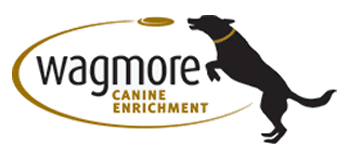The situation is as predictable as it is preventable. A hapless person calls about a small breed dog that they purchased from a pet store or breeder. Although they paid a lot of money for a pure bred, registered puppy, they are having multiple problems. First the puppy is difficult to house train. It is also scared of everyone and everything. When people come to the home, it hides. It doesn’t like to go on walks and doesn’t seem interested in games or toys. Although it isn’t aggressive to the other pets in the household, it wants nothing to do with them.
The description has multiple flags indicating the puppy is probably a “puppy mill” puppy. For now I keep that to myself and ask the caller to make an appointment for evaluation. When the client shows up for the appointment all they said about the puppy is confirmed. I asked about where they got the puppy. If it came from a pet store, it is almost guaranteed that it is a puppy mill dog. Most people have wised up to this fact so most of these dogs come directly from breeders. I am almost always persuaded to believe that it came from a “good breeder”. I usually, nod my head and ask if they picked up the dog from the breeder’s home. The answer is usually something like, “No, they live out in the country so we just met at Walmart to pick up the puppy. They didn’t want me to drive all that way.” I usually ask how they found the breeder. It’s usually from the internet. They assure me however, that they did their research and know it is a “good breeder.”
I usually explain that the puppy, more than anything else, is under socialized. In other words it has not had enough adequate positive experiences in the world to make it feel safe. I go about explaining how we might be able to help the dog become more confident. I give positive methods for house training. I also try to prepare them for the long road they are faced with. I usually refrain from telling them outright that the puppy was most likely raised in a crowded kennel and rarely, if ever had any kind of normal home-like experiences.
After the client and puppy leave I usually go about researching the breeder, if the owner can remember details. The first place I reference, is the Horrible 100 list that is published by the Humane Society of the US. This list is public and can be found on their website, humane society.org. Sometimes, I find the breeder there along with the horrid conditions the puppy was bred and left in for the first weeks of its life.
If I don’t see the breeder on the horrible 100, list I dig a little deeper. I do a search for the breeder name and location. The breeder is rarely listed under someone’s actually name, but instead a cute name like “Puppies Galore” (just an example, and not one I’ve actually ran into yet). They usually have a website and Facebook page with pictures of lovely, clean and healthy looking puppies. They do not have any contact information like a person’s name, address, or phone number. There is a contact form that you can fill out to inquire about puppies.
I can usually tie the breeder name to an actual person by searching the USDA Animal Care Public Search tool. Here I can also see USDA inspection reports. This can be eye opening. One important feature in addition to any violations is the number of dogs the breeder has. Often people are shocked to find that some of the breeders have as many as 600 dogs on site, often with 50 or more puppies.
I wish there was one huge US database for consumers to research breeders, but there just isn’t. In fact some state legislatures have actually fought to keep inspection reports hidden from public view. I also wish people knew how important those early weeks of a puppy’s life are to the dog they will eventually be. For now, the best I can do is inform and educate when I can. I will also help anyone find a reputable breeder, who breeds for temperament and love of the breed – not profit. For more information about how to find responsible breeders see: https://www.humanesociety.org/resources/how-find-responsible-dog-breeder.





